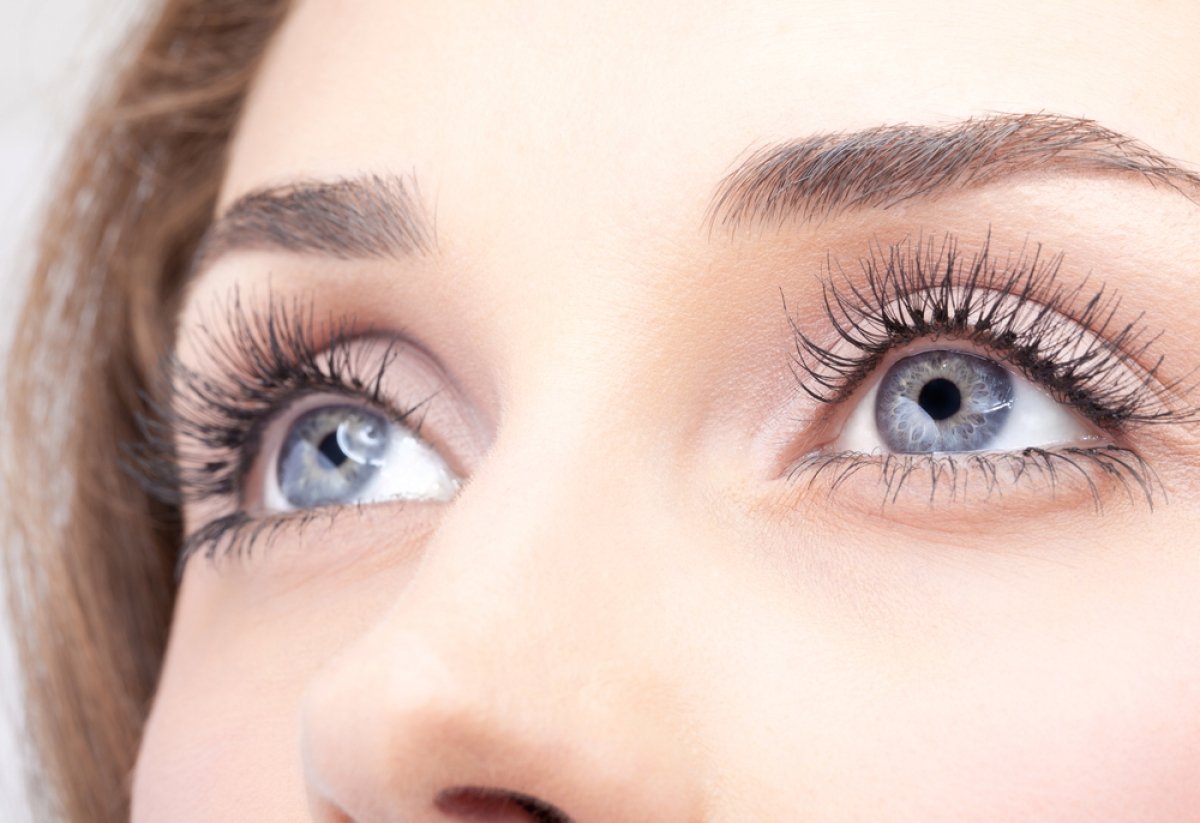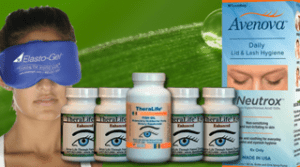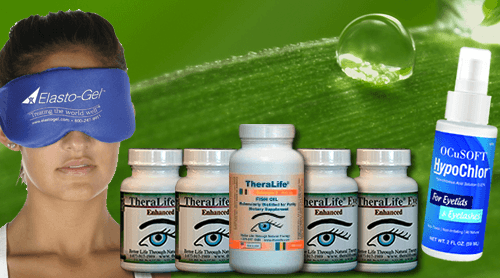Ocular rosacea is a common and often chronic skin condition that affects the eyes.
Ocular rosacea has redness, dryness, and irritation of the eyelids, as well as inflammation in the whites of the eyes – this can result in blurred vision, light sensitivity, and discomfort for those affected.
Although no known cures exist for ocular rosacea, this article will discuss one person’s successful treatment experience.
By understanding their journey and discovering how they managed to find relief from symptoms, readers can gain insight into effective treatments which could benefit them too.
What Is Ocular Rosacea? In (Cure Ocular Rosacea)
Ocular rosacea is an inflammatory condition that affects the eyes and surrounding areas. It is a chronic condition that can last many years without proper treatment.
Symptoms typically include:
- Redness and irritation of the eyelids.
- Burning or stinging sensations in the eye area.
- Swollen eyelids.
- Dry eyes.
The causes of ocular rosacea are unknown, but some contributing factors include genetics, hormones, stress levels, and diet. Eye hygiene also plays an important role when treating this condition; using warm compresses on your eyes may help reduce inflammation and swelling of the eyelids associated with ocular rosacea. Stress relief techniques like yoga and meditation may also benefit those suffering from this disorder since elevated stress levels can lead to flare-ups.
The best way to treat ocular rosacea is by identifying triggers, minimizing their effects, and incorporating regular eye hygiene practices into one’s daily routine. Knowing how to manage symptoms through lifestyle changes will give patients greater control over their care while seeking more specialized treatments tailored specifically to them.
Curing ocular rosacea can be difficult, especially when the situation becomes chronic and the root cause is ill-defined.
From here, we discuss the symptoms and causes of ocular rosacea in greater detail.
Symptoms And Causes Of Ocular Rosacea- (Cure Ocular Rosacea)
Ocular rosacea is a condition that affects the eyes, most commonly manifesting as redness and inflammation. The exact causes of ocular rosacea are unknown—however, certain environmental factors, such as stress or contact with foreign substances associated with ocular rosacea.
Ocular imaging has revealed that ocular rosacea typically involves changes in blood vessels around the eye, causing increased vascular permeability, which leads to irritation and swelling. The main symptom of ocular rosacea is persistent redness, often accompanied by stinging, burning sensations. More severe cases may also be itching, dry eyes, and blurred vision due to corneal involvement.
Curing ocular rosacea can be challenging. Treatment focuses on managing these symptoms through moisture management and other methods depending on severity. For example, artificial tears can help reduce discomfort from dry eyes, while anti-inflammatory medications can reduce swelling caused by irritation. Although some lifestyle modifications – such as avoiding spicy foods, have been suggested as potential treatments for ocular rosacea, no scientific evidence exists to support their efficacy in treating this condition.
Moving forward, we will explore how various treatments can address the signs and symptoms of ocular rosacea.
Treat Dry Eyes To (Cure Ocular Rosacea)
Rosacea is a chronic condition that can cause skin inflammation, particularly around the face. Beyond causing long-term skin-related symptoms, such as facial redness, rosacea frequently causes eye problems. Ocular rosacea can cause a range of eye-related symptoms, from itchiness to extreme light sensitivity, and can vary in severity depending on the rosacea condition. Continue reading to learn more about rosacea and how this skin condition can affect ocular health.
Comorbidity of Ocular Rosacea – Dry Eyes, Blepharitis and MGD
Commonly, patients with rosacea notice chronic eye problems. When this happens, eye care professionals call the condition ocular rosacea. Ocular rosacea occurs when the inflammatory aspect of rosacea affects the eyelids, leading to an array of eye problems. Those with ocular rosacea typically experience dry, itchy eyes and may have chronic redness. They may also experience increased light sensitivity and have an increased risk of corneal inflammation and infection. In severe cases, those with ocular rosacea may develop a corneal ulcer, which can be sight-threatening. The eye problems associated with ocular rosacea most commonly stem from chronic blepharitis, an inflammatory eyelid condition characterized by increased bacteria and debris in the eyelashes. Ocular rosacea can cause or exacerbate Meibomian gland dysfunction, leading to worsened symptoms of dry eye disease. Your eye doctor can identify signs of ocular rosacea by evaluating the front of the eye during a comprehensive eye examination.
One of the most critical factors in controlling ocular rosacea is maintaining the underlying skin inflammation well. Working with a dermatologist to treat rosacea with topical skin treatments or oral antibiotics can help reduce the inflammation along the eyelid’s margins. Treating the specific ocular rosacea symptoms requires a long-term lid hygiene routine to reduce inflammation and maintain clean eyelids daily. Your doctor will likely recommend daily lid scrubs to keep the eyelids and eyelashes clean. Commercially prepared lid scrubs with anti-inflammatory and anti-bacterial properties can help keep the eyelids and eyelashes clean. Your doctor may also recommend warm compresses and consistent use of artificial tears can be used to reduce symptoms of dryness and irritation. Severe cases of ocular rosacea may warrant short-term prescription ointments or eye drops.
My Cure Ocular Rosacea Miracle
Ocular Rosacea has a high level of inflammation which induces chronic dry eyes. TheraLife Eye capsules are oral treatments to reduce inflammation, allow dry eyes to recover, and stop ocular rosacea.
Why TheraLife?
Theralife treats ocular rosacea and dry eyes together – thus optimized for all aspects of ocular rosacea to get optimum results. At the same time, it treats all related complications, such as blepharitis, and meibomian gland dysfunction, simultaneously – making it effective in ocular rosacea recovery.
Learn more about how it works for both dry eyes and ocular rosacea.
Treatments For Ocular Rosacea – (Cure Ocular Rosacea)
Ocular rosacea presents a unique challenge for medical professionals due to its complexity. There are both traditional medical approaches as well as alternative therapies available to manage and treat ocular rosacea.
1. Eye protection is the primary preventative measure doctors recommend when treating ocular rosacea – this includes wearing sunglasses or hats with wide brims to protect eyes from sun exposure and windburn, which can aggravate symptoms of ocular rosacea. Furthermore, protective eye drops can help reduce inflammation and irritation associated with this condition.
2. Laser treatments have been used successfully in managing ocular rosacea symptoms, such as redness and dryness around the eyes. In addition, recent studies suggest that low-level laser therapy (LLLT) may also effectively reduce swelling caused by eyelid inflammation without causing any harm to surrounding tissue.
3. Corticosteroid eyedrops are often prescribed for treating severe cases of ocular rosacea; however, long-term use will increase the risk of infection or glaucoma. Antibiotic creams may treat bacterial infections on the eyelids or around the eyes. Consult a doctor before using.
These treatments offer significant relief from the discomfort associated with ocular rosacea, but they cannot cure it completely.
Traditional and alternative therapeutic options must work together to provide optimal results and improve the overall quality of life for those suffering from this condition.
Traditional And Alternative Therapies- (Cure Ocular Rosacea)
Ocular rosacea is an inflammatory skin condition that affects the eyes, causing redness and irritation. Although no known cures exist for ocular rosacea, traditional and alternative therapies can help manage symptoms.
Traditional treatments include topical antibiotics to reduce inflammation and oral medications such as tetracyclines or isotretinoin. In addition, some patients also find relief from homeopathic remedies such as calendula officinalis or chamomilla vulgaris. Herbal remedies like burdock root extract or tea tree oil have some success in treating ocular rosacea.
Dietary modifications may be necessary for many sufferers of this chronic condition to keep flare-ups at bay – this includes avoiding foods that trigger inflammation, such as dairy products, spicy food, processed sugar, and alcohol.
Additionally, supplementing diets with omega-3 fatty acids has been shown to help soothe symptoms of ocular rosacea in some cases. Transitioning into a diet rich in anti-inflammatory ingredients such as fruits and vegetables can provide additional benefits when managing ocular rosacea flares.
Dietary Modifications- (Cure Ocular Rosacea)
We recommend a diet with low histamine levels and avoiding foods that cause allergies or sensitivities. In traditional and alternative treatments, dietary modifications can effectively manage ocular rosacea – this could include eliminating dairy products, wheat-based grains, and processed food items like canned soups that contain preservatives.
Additionally, consuming antioxidant-rich foods such as fruits, vegetables, and nuts can help reduce inflammation associated with ocular rosacea.
Increased stress has been linked to a worsening of symptoms by triggering flare-ups. Therefore people with ocular rosacea need to take time out to relax and unwind regularly throughout the day. Managing stress through exercise, meditation, or other relaxation techniques also plays an essential role in treating the condition.
In addition, reducing caffeine intake and limiting alcohol consumption may assist in controlling symptoms further.
Herbal remedies have also demonstrated benefits when treating ocular rosacea due to their anti-inflammatory properties that help soothe skin irritation and redness. Common herbs used in these cases include green tea extract, chamomile flowers, and licorice root, which can be applied topically or taken orally.
As always, it is, though, consulting a physician before taking any herbal supplement, given the potential side effects that might occur.
With all these aspects combined, individuals suffering from ocular rosacea should see positive results over time, enabling them to lead healthier lives without worrying about their condition.
As environmental factors play a significant role in exacerbating symptoms associated with ocular rosacea, it is crucial to identify what triggers make the issue worse to avoid it.
Environmental Modifications- (Cure Ocular Rosacea)
Environmental changes can play a role in mitigating the severity of ocular rosacea. Recent studies have shown this to be accurate, with some lifestyle modifications yielding more outstanding results than others.
The following are three critical steps for achieving relief from ocular rosacea:
1. Sun Protection: Wearing sunglasses and hats when outdoors is essential, as sun exposure can exacerbate symptoms such as redness and irritation.
2. Stress Reduction: A consistent routine of relaxation techniques, including yoga or meditation, can reduce flare-ups associated with stress and anxiety.
3. Dietary Changes: Eating foods high in probiotics and healthy fats may help improve overall skin health and regulate inflammation levels related to ocular rosacea.
By incorporating these strategies into your daily life, you can manage your condition while striving toward lasting relief.
Achieving Lasting Relief- (Cure Ocular Rosacea)
Achieving lasting relief from ocular rosacea requires an ongoing commitment to environmental modifications and lifestyle changes.
Exercise regimens like yoga or Pilates can help reduce stress levels and regulate hormone balance.
Incorporating relaxation techniques into daily life also reduces inflammation associated with the condition. Meditation, progressive muscle relaxation, deep breathing exercises, and visualization are simple tools to bring calmness and peace of mind in distress.
When tackling chronic skin conditions like ocular rosacea, it’s essential to take a holistic approach.
It involves making healthier choices by avoiding processed foods high in sugar and saturated fats, which may aggravate symptoms, while increasing the intake of fruits and vegetables rich in antioxidants.
Supplementing essential fatty acids through fish oil capsules or flaxseed oil may be helpful too.
Additionally, drinking plenty of water throughout the day helps keep toxins flushed out from the body, promoting better health overall.
Taking control of one’s health is empowering and necessary for managing any chronic inflammatory disorder naturally without relying on long-term medications.
Working closely with a healthcare professional who understands your particular needs best will enable you to create an individualized plan tailored to specific goals ensuring desired results over time with no adverse side effects.
Taking Control Of Your Health – (Cure Ocular Rosacea)
Individuals’ mental and physical health plays a significant role in their success story in curing ocular rosacea. To successfully combat the symptoms, consider lifestyle changes.
These modifications can include:
– Minimizing stress
– Getting adequate sleep
– Eating a balanced diet rich in vitamins and minerals
– Engaging in regular exercise
– Avoiding triggering foods and beverages such as alcohol or spicy dishes
– Maintaining optimal hydration levels throughout the day
– Wearing protective eyewear when outdoors
– Visiting your optometrist regularly for check-ups
It is also essential to maintain good mental health by:
– Talking with friends and family members about your condition
– Seeking professional counseling if needed
Additionally, staying active on social media platforms can provide valuable support to those who have experienced similar symptoms. By taking these steps towards improving one’s overall well-being, they can empower themselves to manage their ocular rosacea symptoms better.
Frequently Asked Questions- (Cure Ocular Rosacea)
What Are The Long-Term Effects Of Ocular Rosacea?
Ocular rosacea is a chronic inflammatory condition of the eyes that can cause long-term damage if not treated.
Common trigger factors include exposure to extreme temperatures, sun exposure, wind, humidity, and specific lifestyle changes such as alcohol consumption or dietary triggers like spicy foods.
Additionally, improper hygiene habits may worsen symptoms.
Long-term effects of ocular rosacea include corneal complications, dry eye syndrome, blepharitis (inflammation of the eyelids), and meibomian gland dysfunction, which can lead to vision impairments.
Treatment often requires medical interventions, medications, and lifestyle modifications to reduce flare-ups and prevent further damage.
Is There A Way To Prevent Ocular Rosacea? (Cure Ocular Rosacea)
A recent study found that 80% of people with ocular rosacea had a history of acne, making it essential to consider prevention strategies.
When discussing ways to prevent the onset of this condition, diet changes, and environmental factors should be taken into account.
Eating foods rich in omega-3 fatty acids may reduce inflammation associated with ocular rosacea, while avoiding hot or spicy foods can also help reduce symptoms.
Limiting sun exposure is critical, as UV radiation can cause flare-ups.
Finally, avoiding alcohol and smoking is necessary to avoid developing ocular rosacea.
Are There Any Natural Remedies For Ocular Rosacea? (Cure Ocular Rosacea)
Ocular rosacea is a skin condition affecting the eyes that may cause redness, dryness, and other symptoms.
While there is no cure for ocular rosacea, natural remedies such as stress management and lifestyle changes can help manage the condition.
Stress reduction techniques, such as yoga and meditation, have been shown to reduce inflammation associated with this condition.
Additionally, making dietary modifications, including limiting alcohol consumption and eating more foods high in antioxidants like fruit and vegetables, may also improve symptoms of ocular rosacea.
Furthermore, increasing water intake has been linked to improved hydration of the skin around the eyes, which could ease discomfort caused by ocular rosacea.
What Are The Benefits Of Using Traditional Treatments For Ocular Rosacea? (Cure Ocular Rosacea)
Traditional treatments for ocular rosacea include lifestyle changes, dietary modifications, and medications. These treatments can be beneficial in controlling symptoms of the condition, such as eye redness, burning sensation or stinging, blurred vision, dry eyes, and sensitivity to light.
Lifestyle changes may involve avoiding potential triggers of flare-ups like sun exposure, stress, spicy foods, and alcohol. Dietary modifications may also help reduce inflammation associated with the disease by focusing on a diet high in antioxidants and healthy fats while eliminating refined sugars and processed foods.
Additionally, topical medications or antibiotics might treat some of these symptoms. Ultimately, traditional treatment methods are practical measures that allow individuals to manage their condition effectively over time.
Is There A Genetic Component To Ocular Rosacea? (Cure Ocular Rosacea)
Ocular rosacea is a chronic condition of the eyes that can cause redness, itching, and burning sensations.
Recent research has suggested a genetic component to ocular rosacea, although dietary connections, lifestyle changes, and other environmental factors may influence its development.
Many studies showed how genetics interact with these external elements to determine if it is essential to this skin disorder.
There are no definitive conclusions about the heritability of ocular rosacea, but further investigations are ongoing.
Conclusion – (Cure Ocular Rosacea)
Ocular rosacea is a chronic inflammatory eye condition that can have long-term effects on vision, if left untreated.
While there are no known ways to prevent ocular rosacea’s onset, natural remedies and traditional treatments may provide effective symptom relief.
Though medical science has yet to uncover any genetic component linked to ocular rosacea, many sufferings from this condition have succeeded with personalized treatment plans and lifestyle modifications.
The irony lies in that while it may be impossible to predict who will develop ocular rosacea, those affected possess the power to take control over their health outcomes by seeking professional advice.
With dedication and perseverance, we can successfully treat and manage even the most complex cases of ocular rosacea.





